Contents
What is Thyroid Diet?
A new trend in weight loss has been making waves on social media. The idea behind this diet is to cut out all foods that are high in carbohydrates and replace them with healthy fats, vegetables, and protein sources. This article will discuss how it works, who should follow the thyroid diet plan, what you can eat on it, and some of the potential risks involved. The thyroid diet is a low carbohydrate, moderate protein, and high-fat eating plan.
Effect Of Thyroid Diet On Metabolism
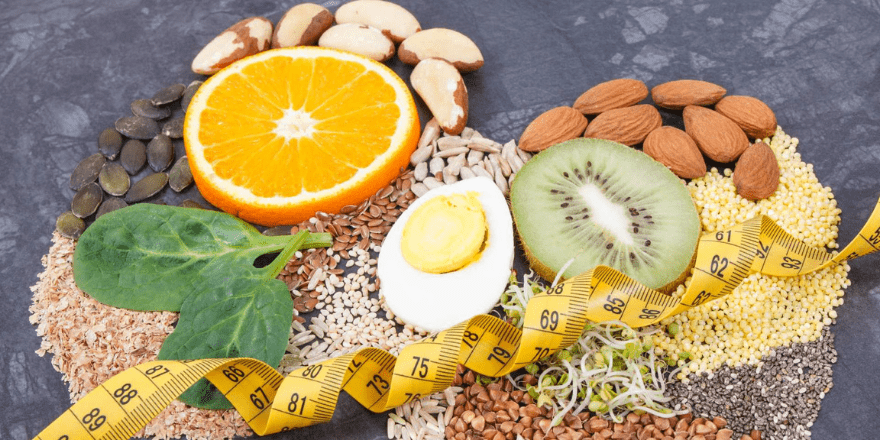
The thyroid hormone has a lot to do with your metabolism. When the body is low on thyroid hormone, metabolism slows down. For example, eating a meal that has 500 calories of carbohydrate and protein will burn off as much as 400 or more calories from fat stores in your body when you have enough thyroid function. A person with less than adequate functioning thyroids would only be able to make it through about 300 calories of carbohydrates or protein before the body started to dip into its fat stores.
The effects of a thyroid diet will differ from person to person depending on the type and severity of your condition as well as other health problems that could be present, such as diabetes or heart disease. For example, those with hypothyroidism often notice weight gain because their bodies are not having a good metabolic response to the thyroid hormones.
This means that your body is unable to convert food into energy, leading you to feel sluggish all of the time. If you are not getting enough exercise because of this feeling then it will be easy for weight gain and an unhealthy lifestyle in general to begin.
The thyroid gland is one of the most influential glands in your body. Not only does it directly affect nearly every organ system in your body, but it also has a huge impact on how you feel and think. Many people don’t realize that they have an underactive or overactive thyroid until they experience symptoms like fatigue, weight gain, and many more. The thyroid is responsible for releasing hormones that regulate your metabolism and the way fat, protein, and carbohydrates are used in your body.
Food to Eat In Thyroid
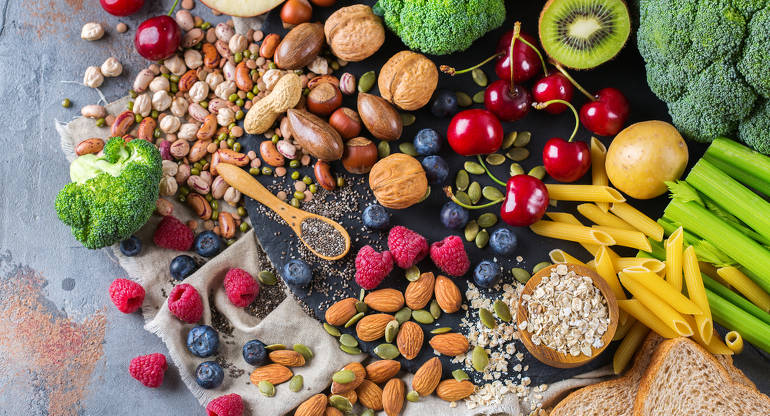
Here are a few things that you should eat when you have Hypothyroidism. Some of the things included in the list are not tasty, but you need to make an effort and eat them because they will help with your condition.
- Parsley
- Lemon juice or apple cider vinegar
- Coconut oil
- Eggs
- Meat
- Fish
- Pineapple
- Coconut water
Other things that you should consider are:
- Quinoa instead of rice or pasta.
- Chia seeds, flaxseeds, and pumpkin seeds in your salads. You can also put them on top of yogurt with coconut oil to make a yummy snack for your thyroid.
- Pineapple is also a type of fruit that you should eat more often because it will help to get rid of inflammation and swelling in your throat, which can be caused by an enlarged thyroid gland.
You might not enjoy eating the above foods at first, but after some time you will get used to them and learn to love them. If you are still not sure about your thyroid diet, consult with a doctor or nutritionist. Make sure that the foods you eat will help improve your condition and aid in proper treatment.
Important Nutrients To Be Consumed In Thyroid
There are certain nutrients that must be included in the diet of a person suffering from hypothyroidism. These include folate, vitamin B12, and selenium. Iron is also required for making up hemoglobin levels which may get affected due to low thyroid function. Calcium selenium, zinc, and iron are also very important for one’s growth. Iron deficiency is very common during hypothyroidism as it hampers normal uptake of this mineral by cells. Foods rich in iron include dried beans, lentils, soybeans, and tofu.
Food Items To Avoid In Thyroid
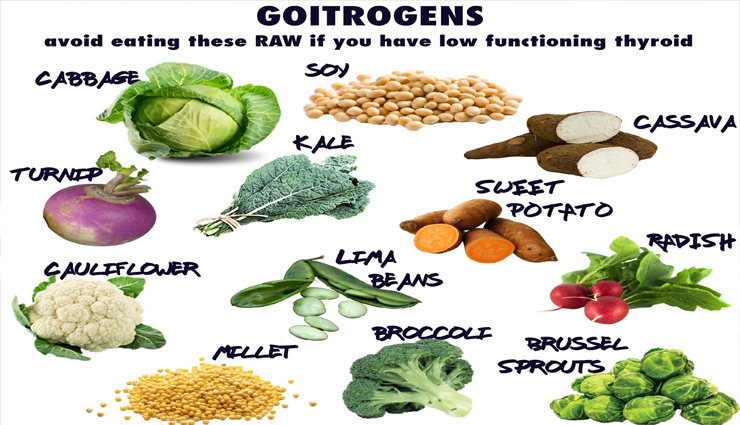
Avoid foods that interfere with thyroid function and block the absorption of iodine, such as soy products and cruciferous vegetables like broccoli or cauliflower. Iodine is necessary for healthy thyroid function. Do not consume sugar in excess (more than 15 grams per day). A diet high in refined sugars can cause hypothyroidism by interfering with the proper function of the pituitary gland.
Avoid foods that contain goitrogens, substances that interfere with thyroid hormone production and can cause hypothyroidism. When large amounts of raw cabbage or kale are eaten, this can cause hypothyroidism.
You also need to avoid certain food items that contain gluten. You must also cut down on fatty food items, like butter and meat. It is good to avoid sugary food items and beverages. The excessive fiber in your body can also hamper your recovery and worsen the case if you have been diagnosed with hypothyroidism.
Nutrients To Avoid In Thyroid
Here is a list of nutrients to avoid in hypothyroidism:
– Soy and soy products (if prepared with other foods)
– Grains, especially gluten-containing grains like wheat, rye, and barley.
– Foods high on the glycemic index (i.e., sugar). Sugar can worsen symptoms such as fatigue, irritability, and weight gain.
-Sugary Food items
– Food that is high in oxalates or goitrogens
-Caffeinated beverages, like coffee and alcohol.
-Excess fiber
-Vitamin D in high amounts
–Dairy products
-“Bad” fats, like trans fat and animal fats. These have been shown to increase inflammation which can worsen symptoms of hypothyroidism.
Facts About Thyroid Diet
There are many things that you may not know if you have either hyperthyroidism or hypothyroidism. Look down to the following interesting facts about the disease and the diet that you must follow
- Hypothyroidism is a condition where the thyroid gland does not produce enough of certain important hormones.
- The symptoms are wide-ranging, but usually include fatigue and weight gain.
- It can also cause depression, hair loss, dry skin, and constipation.
- There are many factors that could cause the condition, including Hashimoto’s disease and iodine deficiency.
- Some foods should be avoided because they contain goitrogens or antithyroglobulins, which can worsen the condition.
- Other foods should be included because they contain selenium, iodine, and vitamin B12, all of which are important for a healthy thyroid gland.
- The diet is generally low in fat and high in fiber, to help prevent constipation – one symptom of hypothyroidism.
7-Day Diet Plan For Hypothyroidism
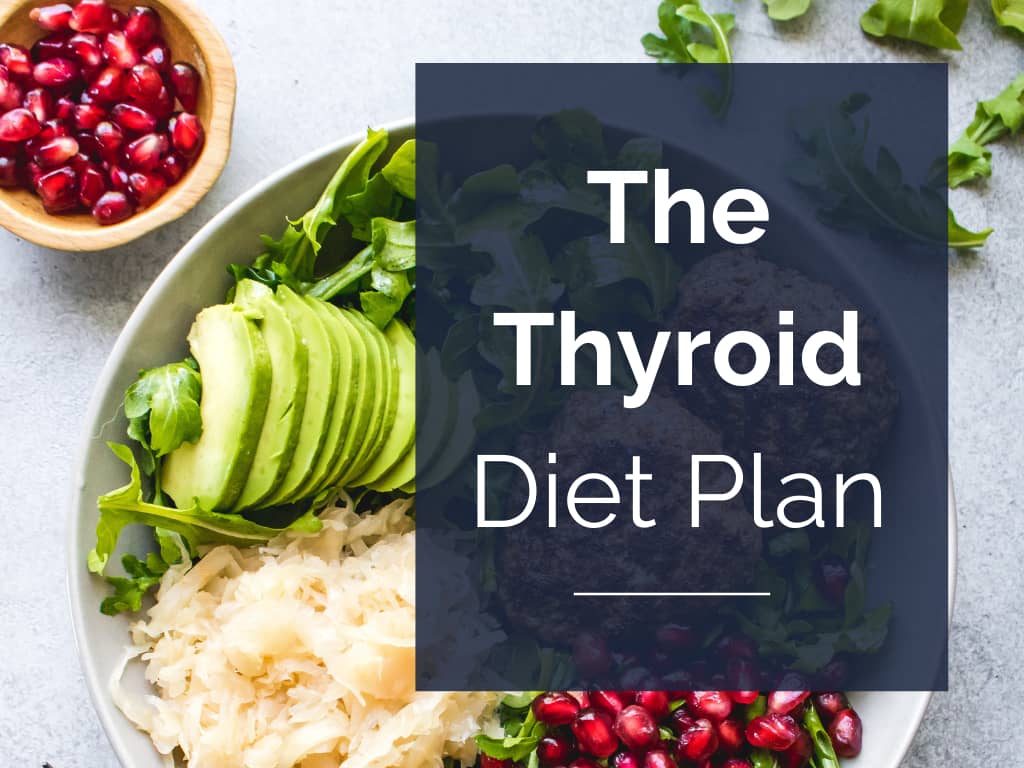
Who does not want an interesting meal when he comes back home after a tiring day? Of course, everyone. It is really challenging for us to compromise with the food that we eat. At the same time, we cannot health hamper if the doctor has diagnosed us with a serious disease. We must not ignore that has a lot to do with our diet. The same is the case when we come to know that we have hypothyroidism. We need to make certain changes to our diet
Monday

Breakfast: 1 bowl oats with walnuts and brazil nuts
Lunch: 2 multigrain roti + 1 bowl chole curry + 1 bowl mixed peppercorn salad
Dinner: 1 bowl egg fried rice
Tuesday

Breakfast: 2 methi paratha
Lunch: 1 Katori quinoa khichdi + 1 Katori cucumber raita
Dinner: 1 bowl minestrone soup
Wednesday
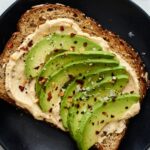
Breakfast: 1 smashed avocado toast
Lunch: 1 bowl coconut chicken soup
Dinner: 1 bowl brown rice + 1 Katori green peas dal
Thursday
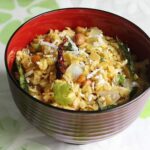
Breakfast: 1 omelet (3 egg whites, 1 whole) + 1 wholewheat toast
Lunch: 1 bowl vegetable oats upma + 1 Katori carrot beetroot onion raita
Dinner: 1 bowl vegetable salad with sunflower and pumpkin seeds
Friday

Breakfast: 1 chia seed pudding
Lunch: 2 grilled cheese wholewheat bread sandwiches
Dinner: 2 multigrain roti + 1 katori egg curry
Saturday

Breakfast: 2 urad dal idli + 2 tbsp chutney
Lunch: 150gm grilled chicken + sauteed vegetables
Dinner: 2 Multigrain roti+ low-fat paneer curry
Sunday

Breakfast: 1 Katori buckwheat dhokla
Lunch: 2 Multigrain roti + 1 Katori egg bhurji + 1 glass spiced buttermilk
Dinner: 1 bowl lemon garlic shrimps
Conclusion
You may also choose to treat hypothyroidism with other medications. Some plant extracts, such as ashwagandha (Withania somnifera), coleus (Coleus forskohlii), Centella Asiatica (Centella Asiatica), and guggul (Commiphora Mukul), might help with hypothyroidism symptoms. However, there is a scarcity of evidence to back up these assertions. Before making any significant changes to your dietary habits or using any supplements, always with your doctor. Having your thyroid levels checked on a regular basis by your doctor can also provide you insight into how your lifestyle changes are affecting your thyroid and general metabolism.


